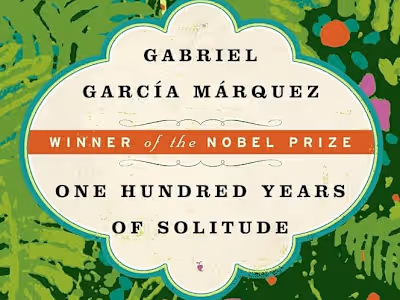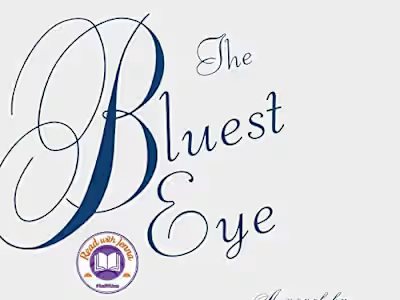The Idea of Evil
In chapter 83 of Kentaro Miura’s masterwork manga, Berserk, the series’ primary antagonist Griffith comes into contact with the god of that world in the moments preceding his own
ascension to a lesser divine status. The being refers to itself as the Idea of
Evil, and more importantly stylizes itself as the desired god. The Idea of Evil
says to Griffith that it was born of humanity’s desire for a reason behind
their suffering. War, famine, pestilence. The collective anguish proved too
great, and even greater than this anguish was the seeming senselessness behind
it all. And thus, from this desire for reason the Idea of Evil was born. Fate
and causality and the struggle against it are two of the most important ideas
in Berserk, if not the most important, and the Idea of Evil is the
architect of causality itself. It explains to Griffith that it engineered human
desire and manipulated history to create the context and lived experience that
would bring Griffith before it, and it ultimately tells Griffith to do as he
will, and that his actions will either bring pain or salvation to humanity.
Griffith chooses to bring pain.
The capacity to be moral agents gives people a unique position in the world (that we have thus far discovered). Animals of course largely lack the capacity for moral judgements and, the things one would place above us in an exercise of hierarchy such as planets,
heavenly bodies, the forces of nature themselves etc. lack this capacity even
more so. Were we to assume these things followed a moral ideology however, the
obvious conclusion as to their doctrine appears to be might makes right.
Larger, more powerful animals generally take preeminence over smaller ones;
smaller heavenly bodies orbit or are attracted to larger ones; weaker forces
are overpowered by stronger ones. That most of us have adopted a differing
perspective speaks to our moral tendencies being at odds with nature itself.
Even so, it is impossible to look at human history without noticing this same
principle playing out in practice despite it being loathed in principle. In Blood
Meridian, the correctness of this view is espoused by the Judge, who states
“This is the nature of war, whose stake is at once the game and the authority
and the justification. Seen so, war is the truest form of divination. It is the
testing of one's will and the will of another within that larger will which
because it binds them is therefore forced to select. War is the ultimate game
because war is at last a forcing of the unity of existence. War is god.” That
power has such an intense selection bias for the most cruel and ruthless of us
is indicative of the ‘correctness’ of might makes right in the absence of moral
judgement. The tension between this apparent truth and our moral ideals is one
of the defining aspects of our condition.
Of all the characters in the novel it is the Kid who most embodies this tension. One of
the earliest descriptions of him reads “He can neither read nor write and in
him broods already a taste for mindless violence.” Everything preceding this
line is either physical description or elucidation of his origins; this is the
first we hear of his character. If we take the Kid to represent humanity, then
this becomes a statement of how fundamental violence and by extension evil is
to us as a species. Reading the Kid (or any character in this novel) as a stand
in for humanity paints an obscenely bleak picture, though nevertheless one that
is corroborated by history; the story the Kid finds himself in itself bears a
painful amount of historical accuracy. However, the Kid is especially apt to
serve this role in interpretation as he throughout the novel shows surprising
amounts of empathy, at least relative to the others around him. His sparing of
Shelby and the Judge when he had both the opportunity and incentive to kill
both demonstrates this. Furthermore, he is more merciful than the rest of the
gang toward their victims (low bar though that may be), and most of the worst
atrocities occur without direct mention to his participation. Of course, this
does not imply his lack of participation or absolve him of guilt, even by
association, but it does make it easier to separate him from the worst of the
worst, represented by the rest of the Glanton Gang, Glanton especially. The Kid
thus perfectly represents the vast majority of people, equally capable of good
and evil, with the path taken most often determined by the moral predilections
of other around them, especially those with a particular tendency towards
either end of the moral spectrum.
I find arguments of human nature being essentially evil to be rather asinine for their parochial focus on the evil we are capable of, as if acts of goodness for some reason do not qualify
as human nature. Of course, these arguments often have a theological bent to
them, the most influential of these of the idea of original sin. Original sin
as a doctrine pairs well with the assertion of the Kid’s innate taste for
violence. If humanity is evil by nature then such a disposition should be
concomitant. But one does not need a theological underpinning to arrive at such
a conclusion. If we were to participate in the admittedly flawed exercise of judging
animals as moral agents then all of them would fail. Of course, they lack the
mental capacity to be judged in this manner. Let us revisit the quote from
earlier: “He can neither read nor write and in him broods already a taste for
mindless violence.” What is fascinating about this is the attribution of malice
immediately succeeding the attribution of ignorance. If again the Kid is taken
to represent humanity, then what this line does is essentially restore us to
our basest form, an unenlightened one. Evil, or what we consider to be evil
thus accompanies ignorance. Take the phrase mindless violence. Typically, this
expression signifies a wantonness, a glibness that makes whatever atrocity
committed all the more reprehensible. However, the killing of a prey animal by
a predator could equally be considered mindless, as it was not any rational
thought that lead to the act, just pure instinct. Consider again the original
sin. It should be noted that when Adam and Eve were cursed and cast out of the
garden, nothing changed about them intrinsically other than their newfound
knowledge. The curse was focused entirely on their circumstances. It could be
said that the act of disobedience is what corrupted them, but even then, the
only explicitly stated differences pre and post fall is how they were perceived
by God and by themselves. The sorts of actions they were capable of, their
intrinsic nature, remained the same. The fact that they were able to commit
evil in the first place is proof of this. In another statement on war the Judge
espouses a similar perspective, stating “It makes no difference what men think
of war, said the judge. War endures. As well ask men what they think of stone.
War was always here. Before man was, war waited for him. The ultimate trade
awaiting its ultimate practitioner. That is the way it was and will be. That
way and not some other way.”
What we consider to be evil can be understood as an agglomeration of key tensions and
factors: the tension between our base nature, incapable of moral judgement and
our aversion to death and suffering; an intellect capable of understanding this
tension as well as envisioning ways of action and of being that resolve that
tension, and a profound despair that arises when we fail to realize those
other, more auspicious possibilities. The only thing that separates humans from
other creatures is moral judgement; even advanced intellect fails to do so.
Thus, by failing to be moral we fail to be fully human. With awakening came a
new form of suffering; animals suffer in many of the way we do – pain, grief,
anxiety – but only we suffer from knowing that there is a better way than what
our instincts compel us to do.
The Judge is without a doubt one of the vilest characters ever put to print, an incarnation
of evil who is almost without rival in his malice despite his every narrative
contemporary being a wretch of the highest order. And yet his deplorability is
equaled in degree by his eruditeness. The depths of his knowledge are shocking.
Take for example when he speaks to a Mexican sergeant, the novel reads “He
adduced for their consideration references to the children of Ham, the lost
tribes of Israelites, Greek poets, anthropological speculations as to the
propagation of the races in their dispersion and isolation through the agency
of geological cataclysm and an assessment of racial traits to climatic and
geological influences.” Another example later in the novel reads “In the
afternoon he sat in the compound breaking ore samples with a hammer, the
feldspar rich in red oxide of copper and native nuggets in whose organic
lobations he purported to read news of the earth’s origins, holding an
extemporary lecture in geology to a small gathering who nodded and spat.” Indeed,
his monologues and lectures recur often throughout the novel, with hardly
anyone there to receive them capable of keeping up with the sheer depth and
density of his knowledge. He far surpasses any individual in both malice and knowledge.
The novel even describes him in divine terms, with statements such as “The
judge sat upwind from the fire naked to the waist, himself like some great pale
deity” and “The judge like a great ponderous djinn stepped through the fire and
delivered him up as if he were in some way native to their element.” The Judge
thus exists not only as an incarnation of evil but also an incarnation of
knowledge, a fascinating juxtaposition that reinforces the idea that our
knowledge is what allows for evil. The Judge greatly resembles the Serpent in
this dual role, especially given the protreptic nature of his speeches.
Murderous as any member of the Glanton Gang, if not more so, yet always seeking
to instruct. The serpent has been identified as Satan and yet his temptation
was ultimately an act of instruction, freeing Adam and Eve from their
ignorance.
Identifying the Serpent as Satan is a defining feature of Christian orthodoxy, but it is
far from the only interpretation of scripture that exists. The idea of
orthodoxy in itself is misunderstood; instead of there being one original
orthodoxy that had to withstand various heresies, the early history of
Christianity is better understood as a time where different ideals competed for
validity, with one interpretation finally winning out (before of course
fracturing several times down the line). Whether this victory was for
spiritual, theological, or political reasons can be debated ad nauseum. One of
the more well-known of these early competing sects, the Sethians, offers a
radically different interpretation of the Bible. In it the material world was
not created by God but by a lesser deity afflicted with ignorance named
Yaldabaoth. The God of the Old Testament is understood to be Yaldabaoth, and
the God of the New Testament to be the true eternal God, reconciling the vast
differences between the two of them. Under this new lens the fall of man goes
from a story of corruption to one of awakening, the first step in escaping the
prison of the soul that is the material world and once more reuniting with God.
Thus, the Serpent is no longer an enemy of humanity but rather a Prometheus
like character who plays a central role in achieving salvation. Such a status
is difficult to attribute to the Judge, given his affinity for malice, however
the strong dualism present in Sethian thought allows for such a comparison to
work. The Serpent, a vessel for liberation it may be is still a creation of
Yaldabaoth, and thus inherently corrupted as it belongs to the material world. The
Judge may have achieved some level of divinity via his awakening but is still
bound to the material world; salvation can only be achieved when one ascends to
a level even beyond him.
Both the Kid and the Judge share an important relation to Glanton. Where the Kid
represents humanity in all its potential for both good and evil, Glanton stands
for only the latter. Where the Judge stands for our potential liberation and
the impulses we must fight against to achieve it, Glanton represents those
impulses in their purest, most brazen form. Glanton utterly lacks any of the
humanity of the Kid or the enlightenment of the Judge. A passage early in the
novel reads “not again in all the world’s turning will there be terrains so
wild and barbarous to try whether the stuff of creation may be shaped to man’s
will or whether his own heart is not another kind of clay.” Glanton is one
whose heart is of clay, and he himself has become a part of the barbarous
terrain that shapes other, the Kid being a prime example. He is a creation of
Yaldabaoth through and through.
The Idea of Evil is such an interesting character because via its construction it essentially avers two of our most central fears: the fear of a meaningless and absurd world
and our fear of moral responsibility. Regarding the latter, most would admit that
we all have Glanton within us to some degree, however where we differ is in the
level of agency we give ourselves in our salvation from such attributes.
Pinning the cause of evil on a deity that is to be ultimately vanquished or some
manner of ontological corruption reduces our level of responsibility and makes
our failures more acceptable, inevitable even. Claiming that salvation comes
from a deity reduces that responsibility even further. Perhaps this is why the
Sethian way of understanding failed to become orthodoxy. The Sethian notion of
salvation via gnosis is one that turns the salvific project inwards. It becomes
something you achieve rather than something granted to you via grace. Imagine
yourself as Griffith, standing before God and being told to choose salvation or
pain for the entire human race. A simple decision it may seem, but the weight
of such a responsibility breaks an astounding number of us, even when making
the decision only for themselves. There is much more comfort to be found in
believing it is the decision of someone else.
Like this project
Posted Dec 19, 2023
College essay on Blood Meridian by Cormac McCarthy
Likes
0
Views
13
Tags



